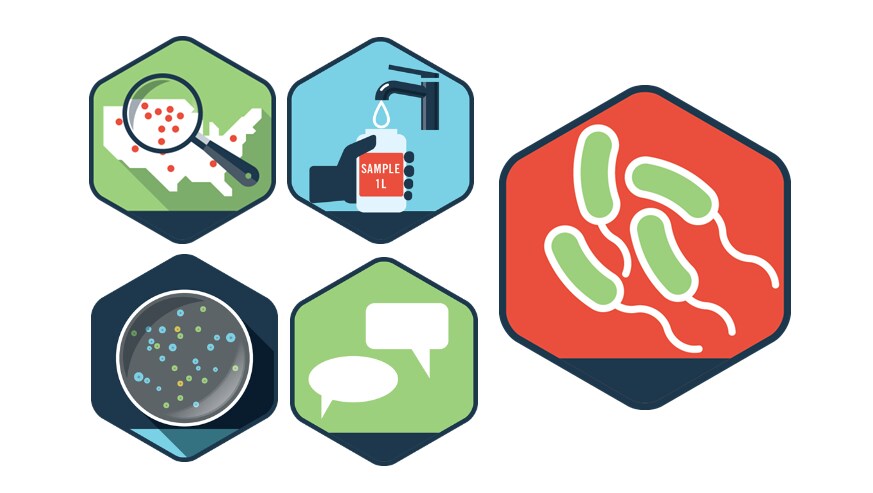Key points
- Legionnaires' disease investigations typically involve four public health fields: epidemiology, environmental health, laboratory science, and health communication.
- CDC has developed resources to help health departments investigate individual cases and outbreaks of Legionnaires' disease.
- State, tribal, local, and territorial health departments have authority over investigations in their jurisdiction.

Overview
Surveillance and reporting
Strong surveillance helps to quickly identify
- New cases
- Potential sources of exposure
- Epidemiologic links between cases
- The need for outbreak investigations
Keep Reading:
Methods for Legionnaires' Disease Surveillance
Epidemiologic investigation
Every outbreak investigation is unique and public health staff must consider many factors in determining the most appropriate response.
Keep Reading:
Health Departments: Outbreak Investigations
Environmental assessment and sampling
An environmental assessment helps to determine where Legionella can grow in a system or device and spread to make people sick.
Keep Reading:
Environmental Assessment and Sampling Resources
Laboratory response
When a Legionnaires’ disease cluster or outbreak occurs, public health laboratories play a vital role in the response.
Keep Reading:
Guidance for Legionella Testing and Specimen Collection
Communications resources
During outbreaks, public health staff often need to communicate through multiple channels to people with different information needs.
Keep Reading:
Implementing a Communication Plan
CDC can assist health department personnel during Legionnaires’ disease outbreaks. Follow the link below to request CDC assistance.